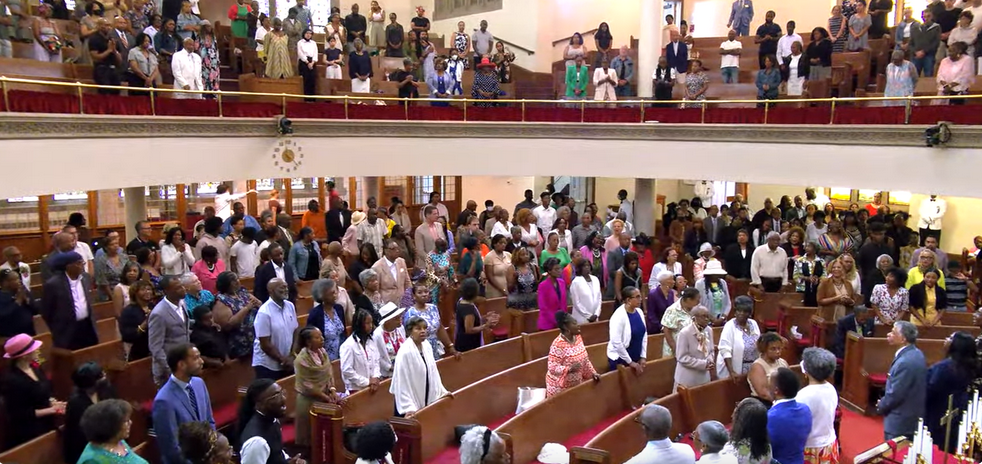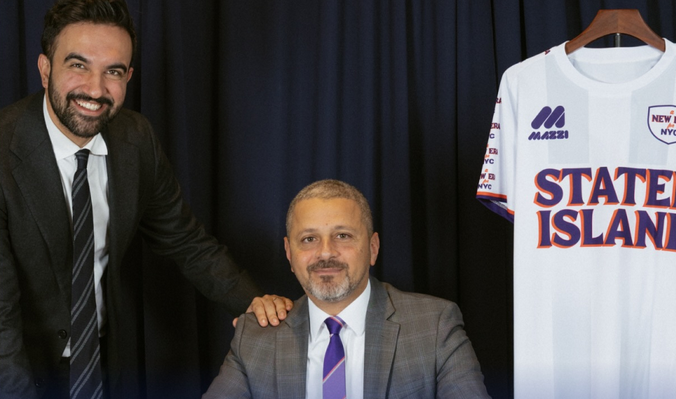[NYC Public Advocate]
Public Advocate Williams: “As contact tracing is employed to stem the transmission of COVID-19 and protect New Yorkers’ health, it is vital to ensure that in intent and in impact, protecting the public health without jeopardizing the public’s civil liberties.”
Photo: YouTube
New York City Public Advocate Jumaane Williams is calling for strong protections to protect the personal COVID-19 data of New Yorkers.
As New York City and New York State move forward in the development and implementation of contact tracing programs to combat COVID-19, Public Advocate Jumaane D. Williams today called for enhanced oversight and strong protections against the abuse of the personal data of New Yorkers used to prevent the spread of the disease.
Video of the Public Advocate’s press conference on the issue today is available here https://www.facebook.com/NYCPublicAdvocate/videos/227593158561088/.
“As contact tracing is employed to stem the transmission of COVID-19 and protect New Yorkers’ health, it is vital to ensure that in intent and in impact, protecting the public health without jeopardizing the public’s civil liberties is paramount,” said Public Advocate Jumaane D. Williams. “Given the history of governments misusing the collection of private information, it is imperative to have policies and procedures in place to protect that information prior to the wide-scale implementation of the program.”
In letters to Mayor Bill de Blasio and Governor Andrew Cuomo, the Public Advocate noted both the strong public health potential of contact tracing programs and the inherent risks associated with mass collection of private information, saying as New York utilized a system of contact tracing is being utilized to stem the spread of COVID-19, “The safety and privacy of the data collected must be a central tenet in New York’s effort to create programming for contact tracing. Impulsive decisions without a plan to store, use, and ultimately destroy this data can result in misuse, violations of privacy, and false positives.”
The Public Advocate questioned city and state administrations about the methods of data collection and utilization throughout the process of contact tracing, including on the role of technology in tracing and what measures are being taken to ensure no third party or private entity can access it. He further questioned who would have access to data and what medical evidence would be used in determining the necessary lifespan of the data collected and means for eventual destruction of the data when it is no longer in use.
As the de facto ombudsman for the city of New York, Public Advocate Williams offered the following recommendations for the program moving forward:
- That any contact tracing system and its technology and data must be housed within the Departments of Health on a state level and of Health and Mental Hygiene on a city level. Under these Department, the data collected through the program should be protected by codes and ethics which regulate these agencies
- That a culturally and linguistically competent workforce be employed due to the high rates of spread of the virus in ethnically and linguistically diverse populations. These community ties can be fostered by contracting with community based organizations where existing relationships can enrich the contact tracing process. These ties should prompt honest and transparent sharing of information
- That the Public Advocate be involved in all stages of this program, including oversight and implementation.
Public Advocate Williams urged the executives that “To maintain public trust, transparency is key. The contact tracing program must include clear objectives, oversight, and community involvement at all levels. We must engage stakeholders in a variety of sectors, such as community based organizations, the private sector, and both state and city governments. This campaign has great potential to save lives, and if implemented correctly, significant implications for setting precedent around privacy protections.”
The letters to the Mayor and Governor can be downloaded at the embedded links.






